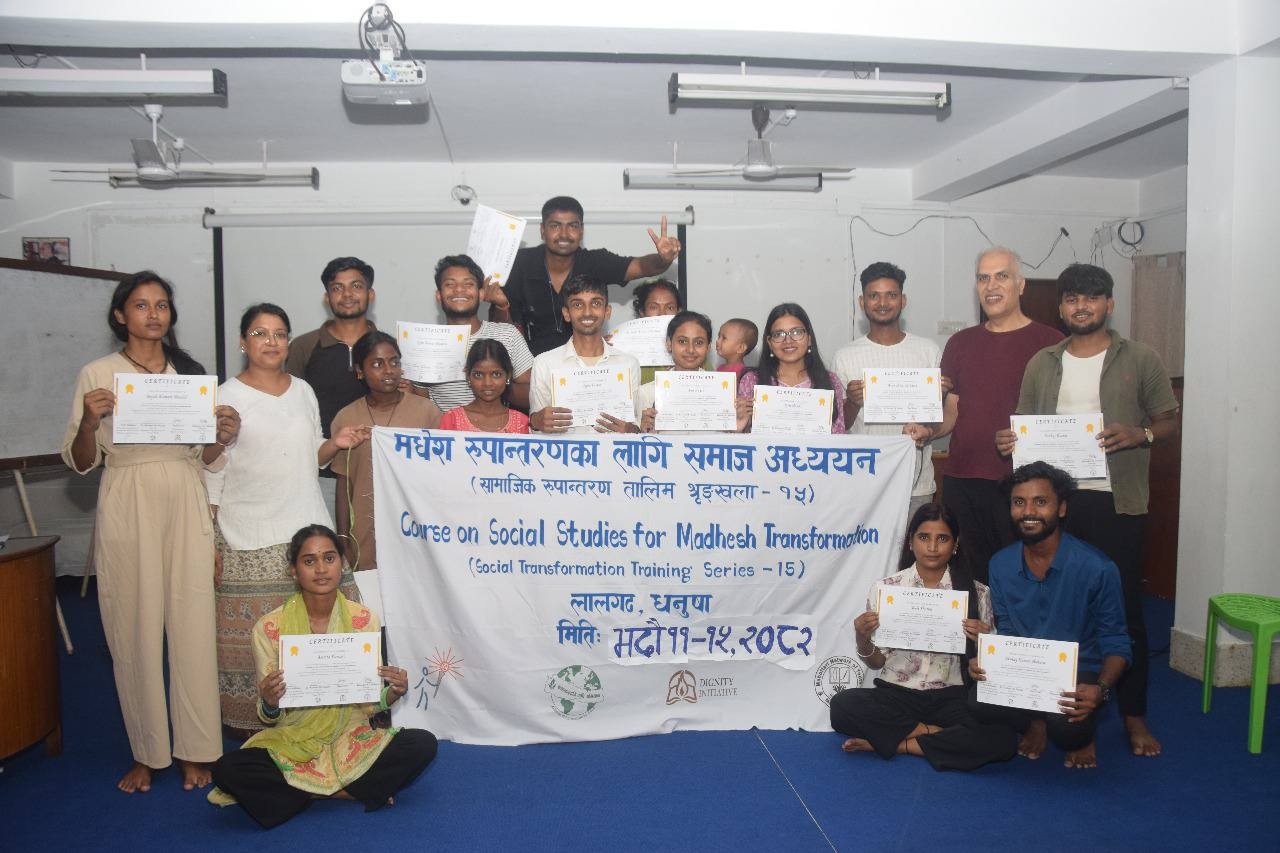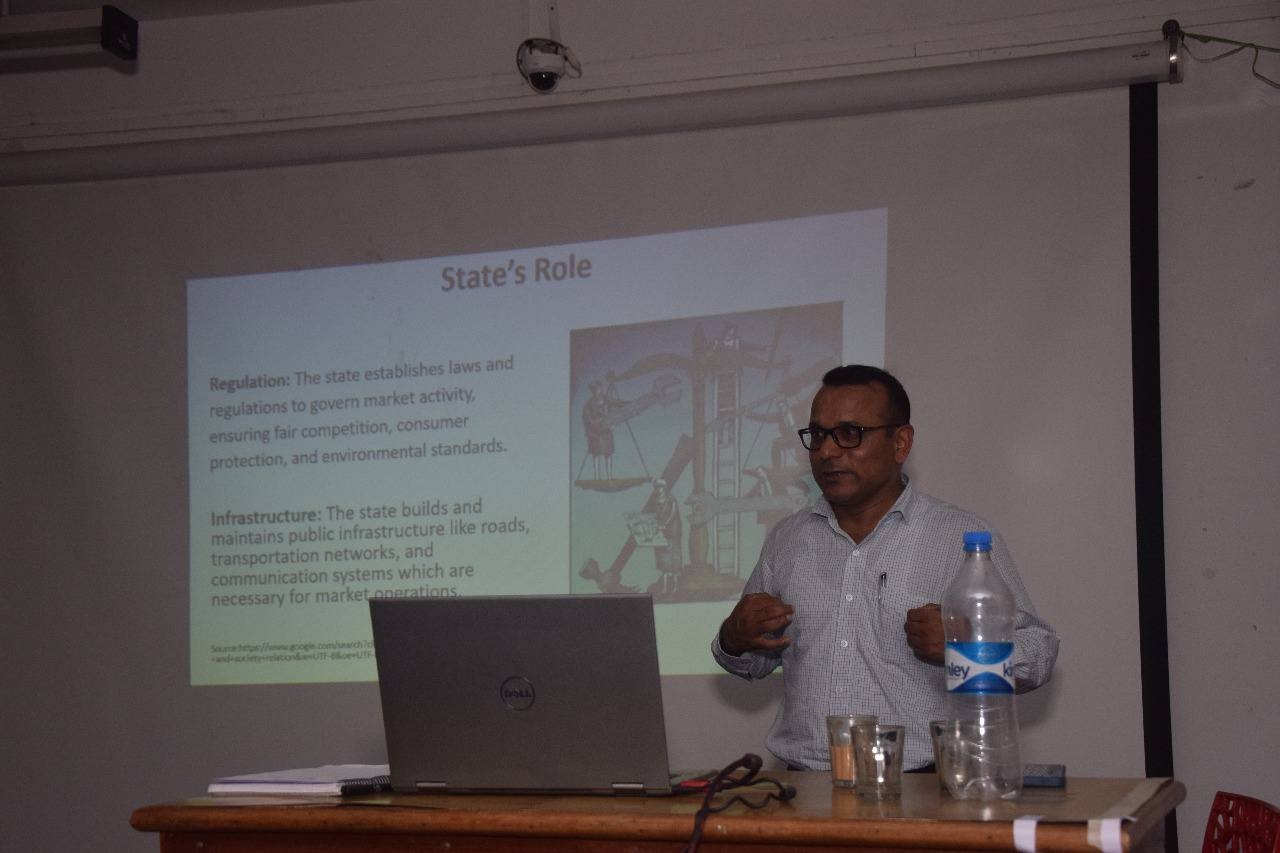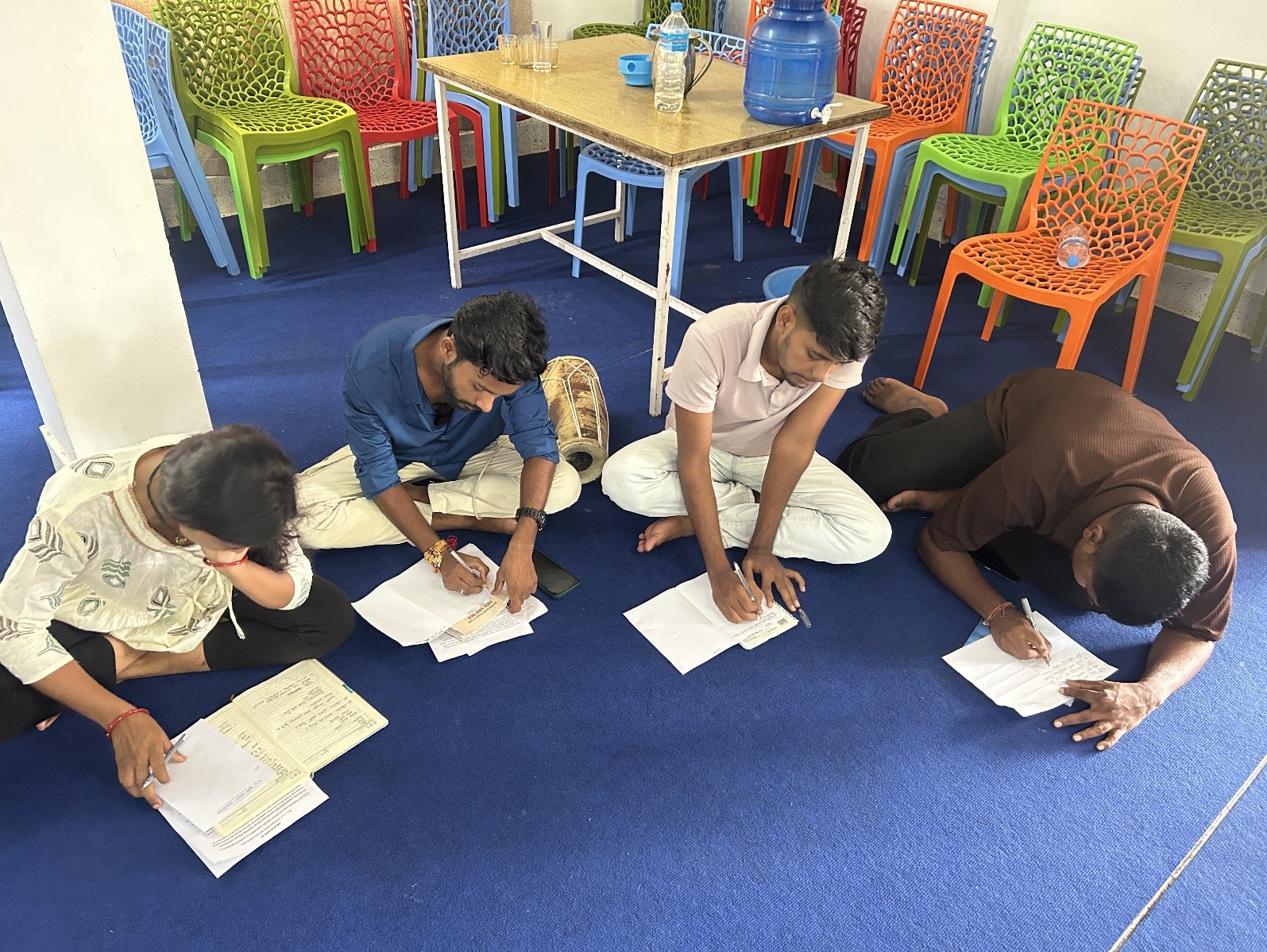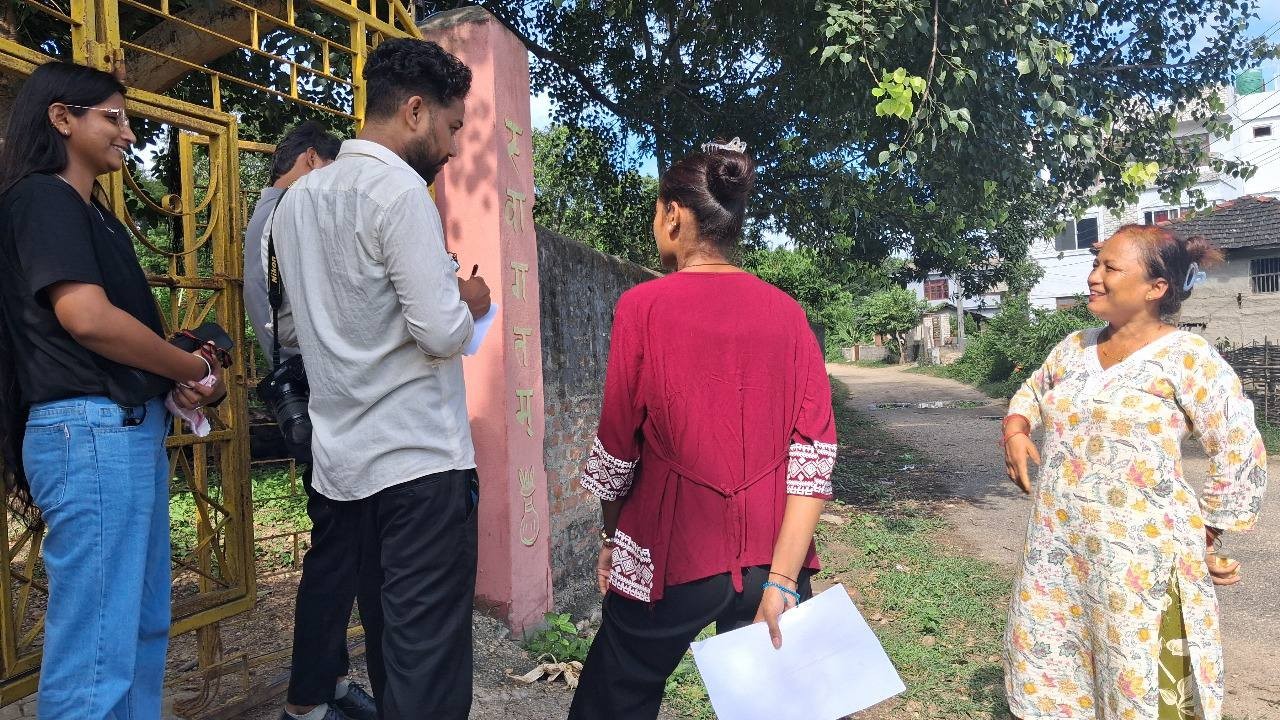ERI Nepal in collaboratioin with Alliance of Agriculture for Food (AAF), Centre for Educational Policies and Practices (CEPP), Dignity Initiative (DI), and the Mahottari Network of Youth, successfully conducted the second series of the Apprenticeship Modular Course on “Social Studies for Madhesh Transformation” from 27th to 31st August 2025 in Dhanusha.
The training aimed to build the capacity of young people from Madhesh Province to understand and respond to pressing social challenges, particularly in the areas of social and environmental justice, while also promoting personal growth and leadership skills.
The major theme of the second series focused on environment and development. The discussions emphasized that global warming and climate change have deeply impacted the entire world, primarily due to the overexploitation of nature through human activities such as deforestation, industrialization, and the excessive reliance on fossil fuels.
We also emphasis on the theme of state and power, with sessions facilitated by Tula Narayan Saha. He encouraged participants focusing the dynamics of authority, governance, and electoral politics in Madhesh. Through interactive discussions and reflections, participants examined how political structures shape decision-making processes and impact the everyday lives of people in the region. Voices from the margins remain silenced, as those in power continue to control everything.

The sessions on world, environment, consumerism, and climate change offered participants a broader perspective by linking global environmental challenges with local realities. Discussions emphasized how even individual actions can significantly impact nature, highlighting the urgency of adopting sustainable solutions and embracing practices such as reduce, reuse, and recycle to minimize excessive consumption and better align with ecological balance.
The training also placed strong emphasis on development and the Chure region, resource exploitation, and environmental degradation in the Chure hills are closely connected to the challenges faced in Madhesh. Discussions highlighted current issues of late rainfall and the government’s announcement of deep boring as a response. Participants reflected that this approach offers only a short-term solution, while the long-term water security of the Terai depends on conserving the Chure, which plays a vital role in natural groundwater recharge.
Beyond classroom sessions, field observations provided exposure to the impacts of climate change on agriculture, such as changing rainfall patterns, soil degradation, and challenges faced by local farmers.
Alongside thematic discussions, the course also covered sessions on practical skills for career growth and guidance on CV writing, career planning, and overall professional development. Through activities centered on self-awareness, empathy, stress management, and interpersonal skills, participants were encouraged to strengthen their resilience and enhance their potential to become future positive change-makers within their communities.
On the final day, public speaking exercises boosted participants’ confidence, perspectives, and communication skills.Overall, the course not only deepened participants’ understanding of social, environmental, and power issues in Madhesh, but also equipped them with practical skills and personal development tools.




